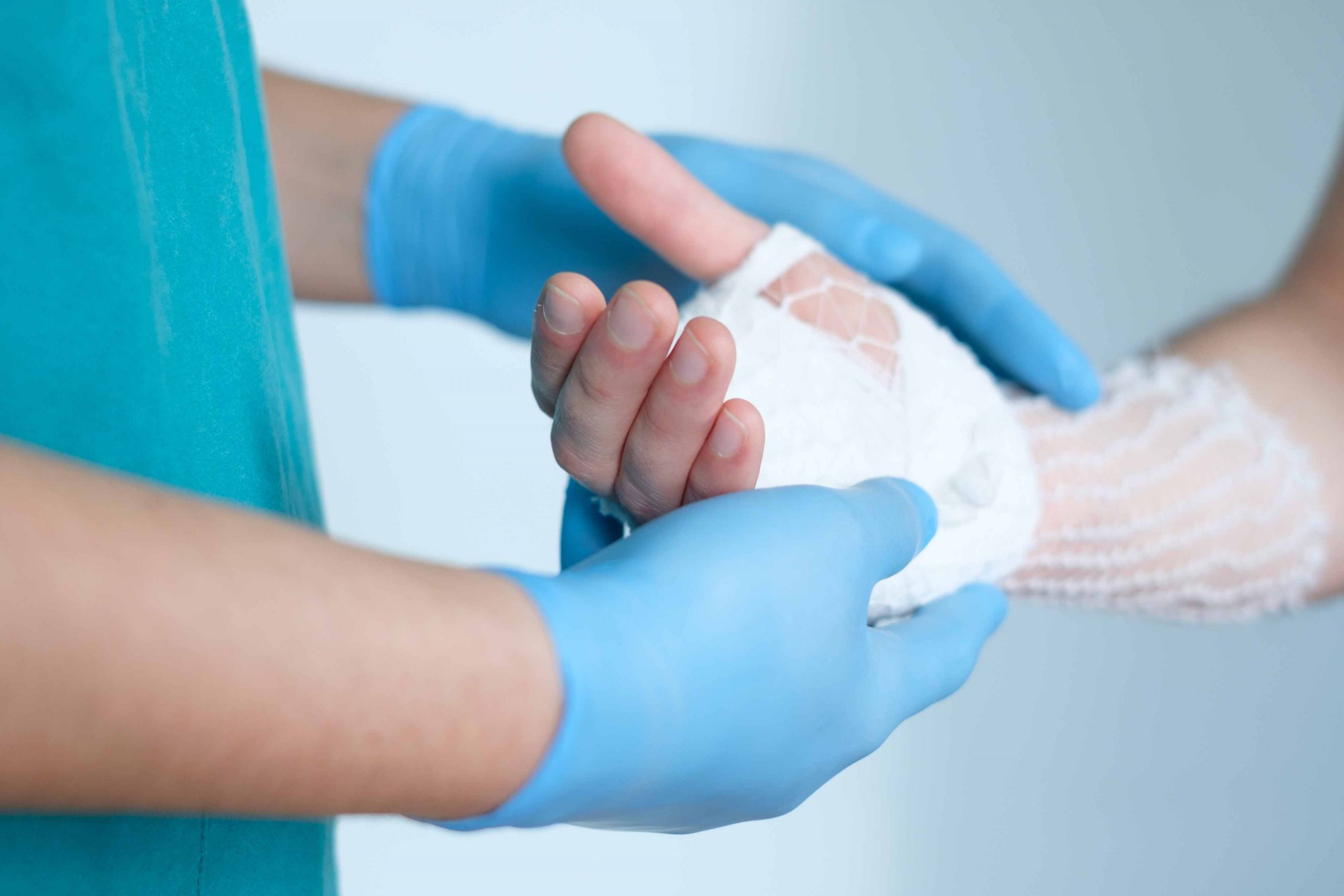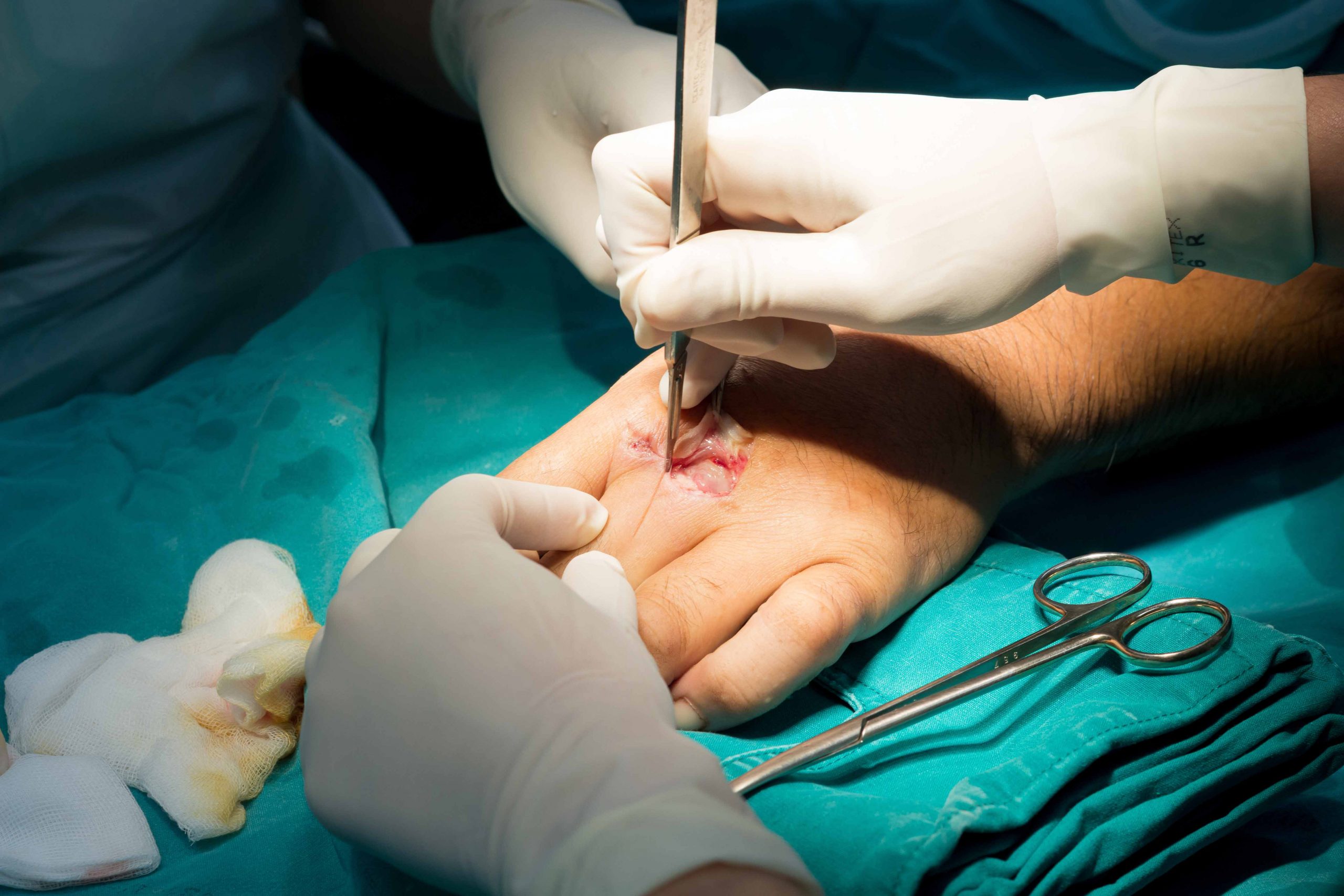The need for Hand Surgery and its different types
Hand forms a unique part of every human body wherein there are bones, ligaments, muscles, nerves, tendons, and blood vessels. Any problem in this organ leads to difficulties in performing usual functions. While minor issues can get away with medications or exercising, major problems, especially those caused due to fracture, or some other mishap need severe intervention. This is where the job of a hand surgeon becomes inevitable. The specialist can improve strength, function, and flexibility of your hand through a surgical procedure hence helping it to recuperate significantly.
When do you need to undergo a hand surgery?
Several reasons underline the necessity to undergo hand surgery. Some of them include:
Hand diseases
Rheumatic diseases (e.g., Osteoarthritis, rheumatoid arthritis).
Presence of degenerative changes
Birth-related complications
Infections

What surgical options can correct your defective hand?
Your defective hand will undergo surgical procedure depending upon the type of problem it is facing. Here are some of the commonly associated surgical procedures in this regard:
Find a Plastic Surgeon in Your Area
Find Top Surgeons in India by Procedure
Find the Cost of a Procedure
Skin grafting
This process involves either a skin replacement or an attachment at the location where your hand witnesses an absence of dermal layer. A hand surgeon largely relies on this skin grafting procedure when there is a need for fingertip amputations or any sort of injuries.
Skin flaps
It is more or less inclined with the previous surgical procedure. The only difference is that here your skin donor site shall be a place wherein the donor region will have its own blood supply. This donor site use is justified, as this process needs a skin graft along with its blood vessels, muscles, and fat tissues. Surgeons usually perform this surgery for regions that lack a dermal layer due to the improper blood supply.
Reduction and fixation
When you have a bone fracture in parts of your hands, inclusive of your fingers, your surgeon shall ask you to undergo a closed reduction and fixation procedure. This surgery helps in realignment of the broken bone region to hold it in its exact position. Alternatively, immobilization is a feasible option to treat internal fixtures using wires, splints, and rods.

Repairing tendons
Your tendon forms a bridge between your bones and muscles. Tendon repairing is hence one of the problematic forms of surgery. You are likely to face a tendon injury in the event when you encounter an infection, unexpected repair, or a traumatic exposure. Usually, a tendon repair surgery is of the following three types:
Primary repair: This is preliminary and direct surgical process, generally accomplished within the first twenty-four hours of your tendon injury.
Delayed primary injury: Yet another type of primary injury caused after a few days from the date when the actual damage took place. The only criteria for to perform surgery for any such injury is that your wound should have an opening.
Secondary repairs: The surgeons usually accomplish this type of tendon repair surgery within 3 to 4 weeks from the first occurrence of the injury. It may or may not include tendon grafting process. Under this surgical procedure, the surgeons shall pick up healthy tendons
from different regions of your body and graft them to the damaged area.
Nerve repairs: When you face an injury to the nerve of your hands, you can have a loss in the sensation of the feeling and functionality of your hand. Several nerve injuries are capable of healing automatically on their own, but many severe nerve damages may require you to undergo a surgical procedure. This type of surgery is best to undergo within a period of 3 to 5 weeks form the day on which your hand nerves suffers damage.
For nerve damages where the primary damage is nowhere associated with any type of further complications, hand nerve surgery is an immediate and indispensable requirement. This helps in facilitating the full recovery process.
Fasciotomy
Preferred for individuals with compartment syndrome, Fasciotomy is more or less a painful condition accompanied by swelling and in a small compartment of the body. Swelling is usually due to the increased pressure that you experience in that particular region. The increased pressure may unnecessarily interfere with the blood flow to your body tissues, thereby disturbing its functionality. When the compartment injury has association with your hand, you may face an increase in pain accompanied by muscle weakness.
Joint Replacement
Medically called as arthroplasty, this surgical process is effective in the treatment of hand arthritis. Here, your hand surgeon shall proceed with the replacement of your joint, which has been severely injured by arthritis. Your artificial joint here may include metal, silicone rubber, plastic, or your own body tissue.
Are there any risks associated with hand surgery?
Majority of the hand surgeries are likely to accompany side effects related to anesthesia, bleeding, and other associated risks. Some of them are infection, formation of blood clots, incomplete or delayed healing process, and loss of functionality of either hands or fingers.
Bottom line
Not all types of hand injuries are in dire need of any surgical procedure. Medication, therapy, splints, and injections are a few forms of alternative treatment options available before you. Still, if the injury is severe and is hard to get away with non-surgical methods, opting for hand surgery is the ultimate option. Consulting an experienced surgeon would be advisable in this regard, as the concerned professional would guide you better on all the aspects of the hand surgery. Adeptly done surgery guide will further ensure an improved strength, function and flexibility for your injured hand.


